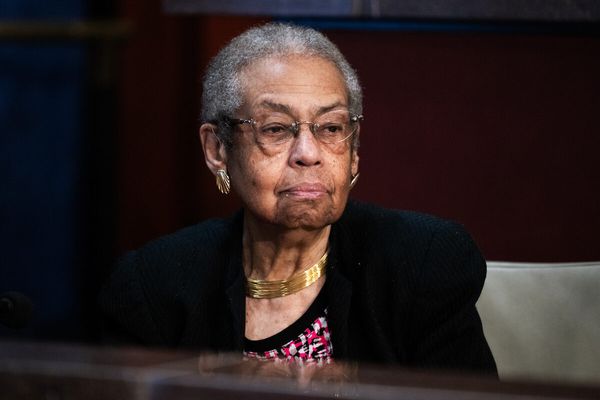
Inflation is affecting older people, with 80 per cent of 50-plus respondents surveyed by National Seniors and Challenger saying they are feeling the impact.
Some 90 per cent of those responding were “concerned” about keeping up with living costs while a smaller group was “extremely concerned”.
National Seniors Australia chief advocate Ian Henschke said the survey results confirmed what he had long suspected.
“If you’re an older person renting or on a low income, you’re more likely to be hit hard by rising living costs,” he said.
“Older people in rural and remote areas, those in larger households (more than three people), and people in their 50s are more likely to be struggling.”
The effects of inflation on older people were confirmed by the latest retirement standards survey taken by the Association of Superannuation Funds of Australia (ASFA), which found the cost of funding a comfortable retirement leapt 7.5 per cent in the year to December 31.
Although that is a significant jump, it was below the December CPI figure, which recorded an 8.4 per cent rise.
The overall ASFA rise was 7.5 per cent, but the increases for some goods and services were far higher.
Food products rose by as much as 20.8 per cent and utilities, petrol, travel and accommodation were all well into double figures, as the chart above shows.
The end result was that ASFA now estimates a couple aged about 65 needs $69,691 a year to fund a comfortable retirement, and $49,462 for singles.
For a modest lifestyle the figures are $45,106 for a couple and $28,914 for a single person.
The figures mean many retirees are going backwards, with the median growth superannuation fund losing 4.5 per cent in value last year.
When the effects of inflation are considered, those super fund members lost 13 per cent of their retirement savings last year.
Retirees on a part-pension would have seen those losses reduced because the pension is increased twice yearly with the CPI.
Anyone on a full pension would have nominally kept up with the inflation rate as a result of those pension increases, but with food and utility price rises in double figures their economic wellbeing would have been severely eroded.
We are slipping
It’s not only retirees who are feeling the effects of inflation.
“Everybody’s going backwards,” independent economist Nicki Hutley said. “Nobody’s getting 6.8 per cent pay increases to keep up with the latest inflation figures, let alone the 8.4 per cent we saw last year.”
The National Seniors survey indicates a change in the financial reality for people in the latter years of their working lives.
Back in 1995, 72 per cent of people aged 55 to 64 owned a home outright. But by 2016 – the most recent available data – that figure was down to 42 per cent and is likely to have fallen since.
So it’s not surprising that many people in their 50s are feeling the damaging effects of inflation.
Retiring with big mortgages
“The picture now is more complicated. Do you have super and if so how much do you have – do you own your own home and how big a mortgage do you have?” Ms Hutley said.
“More and more people are retiring with larger and larger mortgages these days,” Ms Hutley said. “And there is rent inflation for those who are renting.”
The end result of these realities is that retirees are increasingly going back to work, or thinking about it. National Seniors found that 16 per cent of people who had retired had gone back to work and another 20 per cent were thinking about it.
Social change is also driving older people into more precarious financial situations. “You would find that more people in their 50s and older have split up or been through a divorce,” Mr Henschke said.
“They could be living alone and renting and that’s a huge problem, with 50 to 59-year-olds 2.5 times more likely to be renting than 80-year-olds. We know that 80 per cent of 80-year-olds own their own homes.”
He said employment changes are also causing more financial difficulties for people in their 50s.
“Before COVID we saw a large number of people in the 50 to 60 age group lose their jobs, and maybe they haven’t been able to go back to full-time work.”
Not only might these older people be out of work, changes to the super system mean they have less access to cash.
“You used to be able to access your super when you turned 55, but now that has been pushed out to 60.”
Inflation is likely to remain a stubborn reality, but at levels that are more manageable for many people.
“It might still be in the 4 to 5 per cent range by the end of the year while wage increases are likely to be in that range,” Ms Hutley said.
The New Daily is owned by Industry Super Holdings







